
The FERA conference 2023: Education and research in society – Society in education and research
The 2023 Finnish Educational Research Association (FERA) conference took place on November 23rd – 24th at Åbo Akademi University, Vaasa. FERA’s annual conference is dedicated to advancing educational research and disseminating its findings. Drawing on hundreds of researchers, educators, and experts in the field of education from Finland and abroad each year, the conference fosters collaboration and knowledge sharing. The goals encompass promoting educational research, expanding the societal influence and connections of the association, and strengthening ties with international and national scientific educational communities.
This year’s conference, themed ‘Education and Research in Society – Society in education and research’ underscored the interconnectedness of well-being, hope, education, and participation. It aimed to spark discussions on the role of research in society, how research enriches teaching practices and its broader societal benefits.
Consistent with last year, GINTL organized a symposium at the FERA conference under the theme ‘Bridging education research, practice and global education development’. In this blogpost, we present this year’s symposium highlights, draw attention to the role of collaboration as core principle in bridging the research-practice gap in education development, and present key takeaways. For a recap of last year’s symposium, please read this blog post here.
GINTL symposium: Bridging education research, practice and global education development
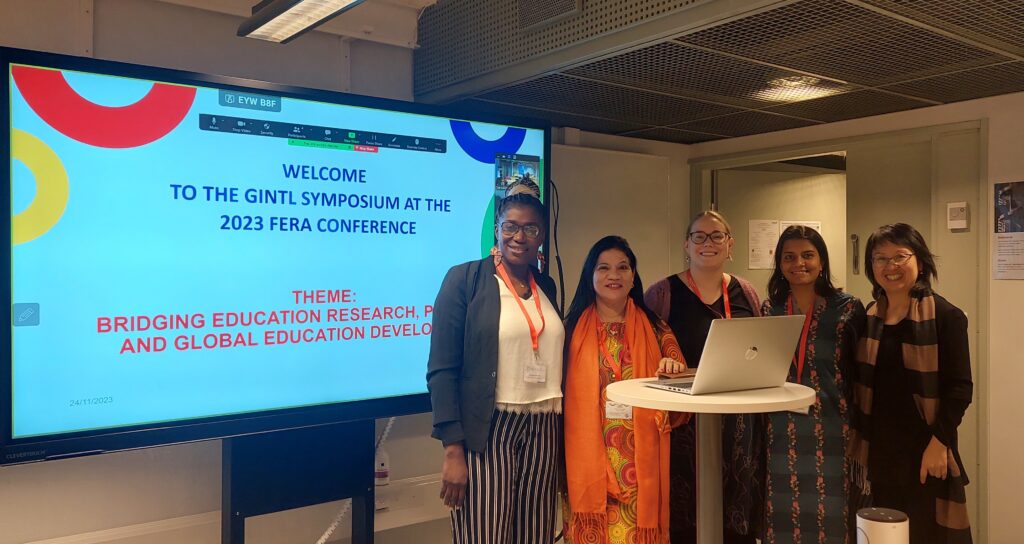
At this year’s FERA conference, GINTL organised a symposium on the theme ‘Bridging education research, practice and global education development’. Education development is a dynamic and multifaceted field that goes beyond the classroom, encompassing policy development, system enhancement, and the analysis of how education functions at different levels. As organizations and researchers strive to address local and global challenges, the pursuit of research-based solutions has become a guiding principle in the realm of global education development.
Aims of the GINTL symposium at the FERA conference:
- Facilitate reflection: Encourage participants to critically reflect on their roles as researchers and practitioners, fostering a deeper understanding of their unique contributions to global education development.
- Promote collaboration: Create a space for networking and collaboration across organizations and individuals and foster a sense of community among those dedicated to global education development.
- Co-create understanding: Work towards collectively constructing a shared understanding of how research can contribute to bridging the gap between educational research and global education development in practice.
- Encourage diverse perspectives: Seek input from various localities and actors involved in global education development, ensuring a diverse range of perspectives to inform a comprehensive understanding of the field.
The symposium featured three presentations from diverse contexts: Finland, Ghana, South Africa, and India. Richardine Masoline Poulton-Busler (University Lecturer, University of Namibia and visiting scholar at the University of Helsinki) acted as a chair and Kinnari Pandya, (Associate Professor, Azim Premji University, India) as the discussant.
The chairperson, in her introductory remark, reflected on how educational systems are not the same everywhere. There is a need to strengthen collaboration and institutional learning amongst experts in partner countries to ensure countries learn and co-create best practices in education for skills development and national progress.
Highlights from the presentations
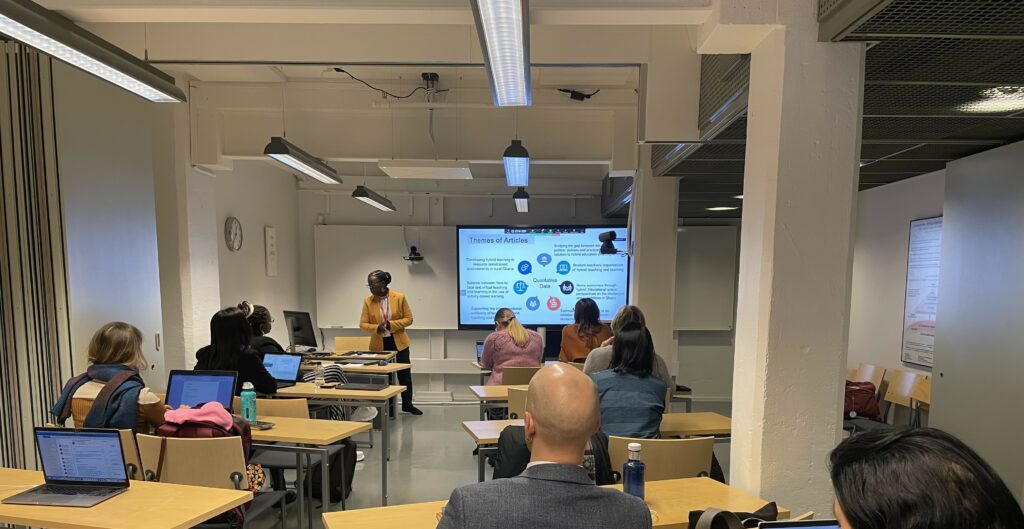
The first presentation by Hannah Edjah (PhD, a University Lecturer both affiliated with both the University of Ghana and the University of Helsinki) had as title ‘Finnish and Ghanaian collaboration: Supporting sustainable futures in senior high schools and universities in Ghana’. The focus was on exploring hybrid pedagogy for vocational education, as an important subject area for high-school and senior school students in Ghana. The presentation spotlighted the integral role of community experts in delivering vocational education, incorporating technology and utilizing children’s learning portfolios as educational artefacts. Challenges related to recruiting and integrating community experts in vocational education practices were discussed, promoting reflections concepts of hybrid pedagogy, and considerations of the nature of partnership across the collaborating universities.
The second presentation by Perttu Ervelius (Doctoral Student at the University of Helsinki) titled ‘Learning to design-Designing to Learn’, outlined the research methodology employed in a STEM teaching-learning project involving three universities: the University of Helsinki, the University of Turku, both in Finland and the University of Johannesburg in South Africa. The presentation underscored the rigorous collaborative planning among the partnering universities with a central goal of supporting researchers and teachers in adopting innovative teaching modules for STEM concepts aligned with achieving sustainable development goals. It showcased the use of Lego blocks to facilitate learning, fostering critical thinking, problem-solving skills, computational skills, and creative reasoning. Participants inquiries indicated a keen interest in understanding the contextual relevance of learning experiences for students in Johannesburg and the role collaborators played in determining topics of local and contextual relevance. Both presentations resonated with the pedagogic techniques that not only interested students, but also facilitated exploration, provided new experiences, engaged children, and elicited performance beyond their typical capacities.

The third presentation by Rachana Bhangaokar (PhD, an Assistant Professor and Acting Chair of the Department of Human Development and Family Studies at the Maharaja Sayajirao University of Baroda in Vadodara, Gujarat, India) was on ‘A Mobius Strip Model of Decolonizing Knowledge in India: Pathways for Global Research Collaborations (presented online). This presentation delved into the interdisciplinary aspects of studying human development and families, addressing challenges faced in the discipline when utilizing Western-colonial frameworks to understand human development in the Indian context. The presentation proposed an envisioning model for developing an internationalized curriculum for Human Development and Family studies, highlighting the continuities and convergence between contextually grounded knowledge in India and its internationalized application for contemporary understandings. The analogy of the Mobius Strip in research collaboration illustrated the continuous loop of practice-action-research, advancing contextually grounded disciplinary knowledge.
Reflecting on the presentations, the chair noted that “The first two presentations gave compelling examples of strengthening the involvement of communities to develop skills and knowledge”. She further stated that: “We have reached the point not only to train students, but to draw lessons from our societies to build curricula reflective of societal needs, as was indicated in the last presentation from India. We should see it as a collective effort between schools, universities, communities to capacitate and strengthen our education accordingly”.
Research should be highly encouraged, particularly through community involvement, and to recognise their involvement through a small token of appreciation in a form of a certificate of participation. According to the chair, this resonates with what Prof. Arjun Apparurai from the New York University, US, at the ANGEL conference in Paris (19/05/2023) in his keynote claimed: “Research has largely been done by a small intellectual elite”. This tiny intellectual elite share what they know and learn, but how well can this research body include rich local participation? This rich local participation is evident in the presenters’ providing development towards a sustainable world. Furthermore, this links with what universities expect from educators: to work with communities as part of our academic responsibilities, enriching our teaching and research.
Collaboration at the core of bridging research and practice in global education development
The discussion led by Kinnari Pandya encapsulated and underscored the core, shared elements that appeared at the heart of the collaborative projects presented and her own experience coordinating activities with the University of Jyväskylä and University of Helsinki with Azim Premji University through the GINTL India network.
Typically, scientific research collaboration between Western institutions and other regions, particularly marginalized communities, have been characterized by a hierarchical relationship in shaping research questions and frameworks. However, the three presentations seemed to indicate that at the heart of all collaboration, and global education development was a research-practice-disciplinary quest continuum that resulted in active partnerships.
The discussion emphasized a reciprocal and dynamic relationship between key elements driving these collaborations, including:
- A commitment to contributing to global ecosystem of knowledge sharing and building with SDG goals steering the imperative to collaborate with partners from under-represented and less studied contexts.
- The significant learning opportunities that each project provided to participating institutions and individuals, fostering an understanding and appreciating of diverse contexts, and evolving solutions that are contextually viable and relevant.
- The two empirical studies presented, along with the call for collaboration using the mobius strip model, reflected the innovative solutions required to be integrated into mainstream practices for achieving education development.
- Lastly, relationships that rested on the principle of mutual respect for all partnering individuals and institutions would need to be at the heart of genuine collaborations for global education development.
Actively acknowledging these elements and recognizing the nuances at various stages of collaborations will likely determine the ultimate success or failure of these collaborative endeavours.
Conclusion: Main takeaways
The symposium poses a series of crucial questions that invite reflection from researchers and actors involved in global education development:
- Motivation for research: What drives us to delve into specific topics? Understanding our motivations is essential for aligning research goals with the broader objectives of education development.
- Determinants of research topics: What factors define and determine the topics we choose to explore? Unravelling the influences behind our research topics is crucial for creating relevant and impactful studies and interventions.
- Accessibility of research: How do we ensure that our research is accessible beyond academic circles, reaching policymakers and practitioners? Bridging the gap between research and real-world application requires effective communication strategies.
- Valuation of research in practice: Whose research is valued in the field of global education development, and what criteria are used for evaluation? Acknowledging diverse perspectives and sources of knowledge is vital for fostering a comprehensive approach.
- Connecting research and practice: In what ways have we successfully connected research findings with practical applications in global education development initiatives? Identifying diverse practices can inspire more effective integration of research into real-world solutions.
- Supporting the connection: How can we strengthen the link between research and practice in education development? Exploring avenues for support and collaboration can enhance the impact of research on the ground.
- Collaboration at the core: What constitutes genuine collaboration? How does collaboration support the quest for research-practice-disciplinary advancement continuum? Could we look at questions that enable this?
- Context matters: Whose questions are we answering? Are these contextually significant? What should be done in the global education initiatives to ensure identification of contextual questions and contextual solutions?
Authors
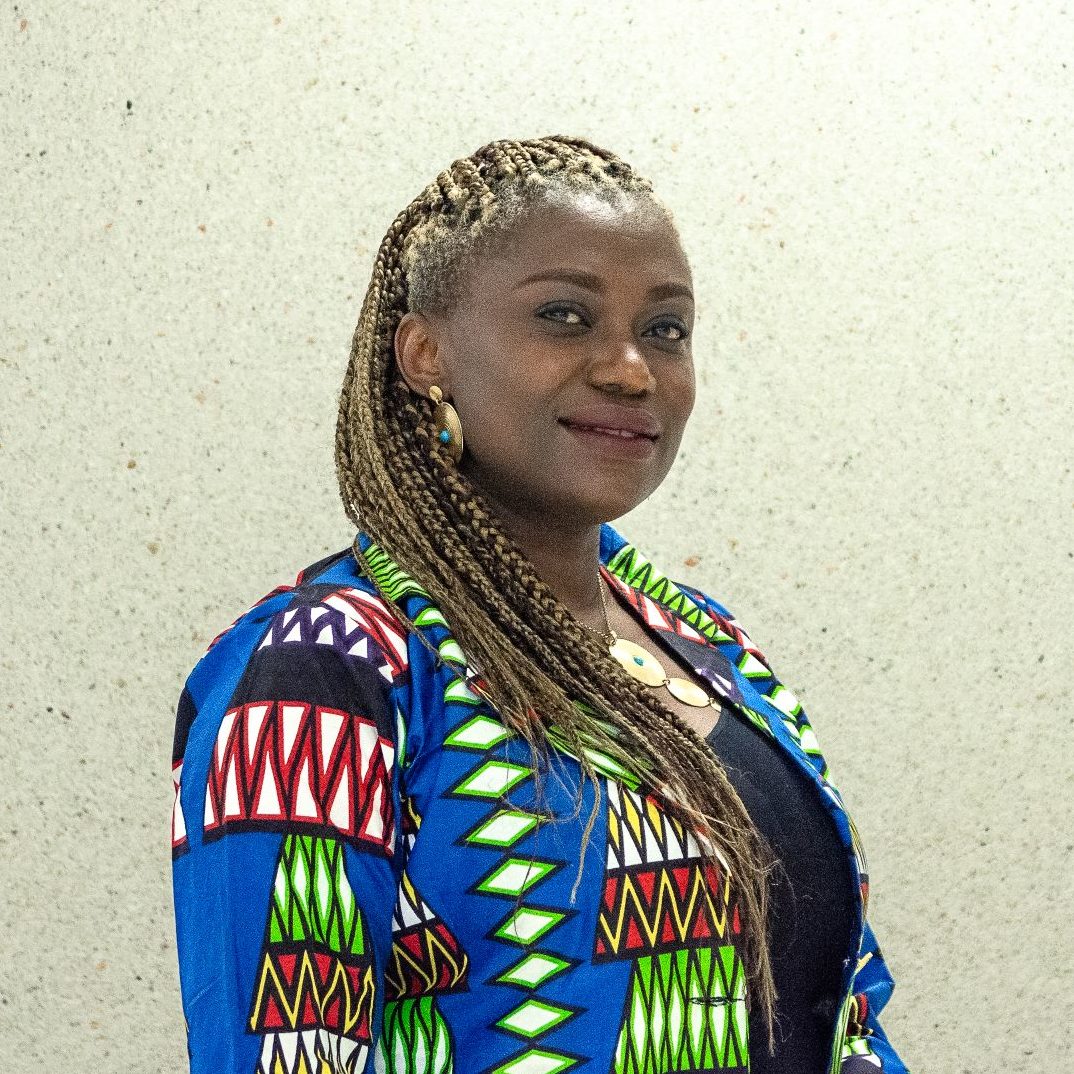
Elizabeth Eta
Postdoctoral Researcher, Global Innovation Network for Teaching and Learning (GINTL)
elizabeth.eta[at]helsinki.fi | Research portal
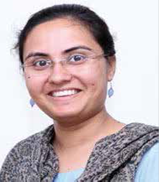
Kinnari Pandya
Associate Professor, Azim Premji University, Bangalore, India
kinnari[at]apu.edu.in

Jenny Niu
Postdoctoral Researcher, Global Innovation Network for Teaching and Learning (GINTL)
jenny.niu[at]helsinki.fi | Research portal
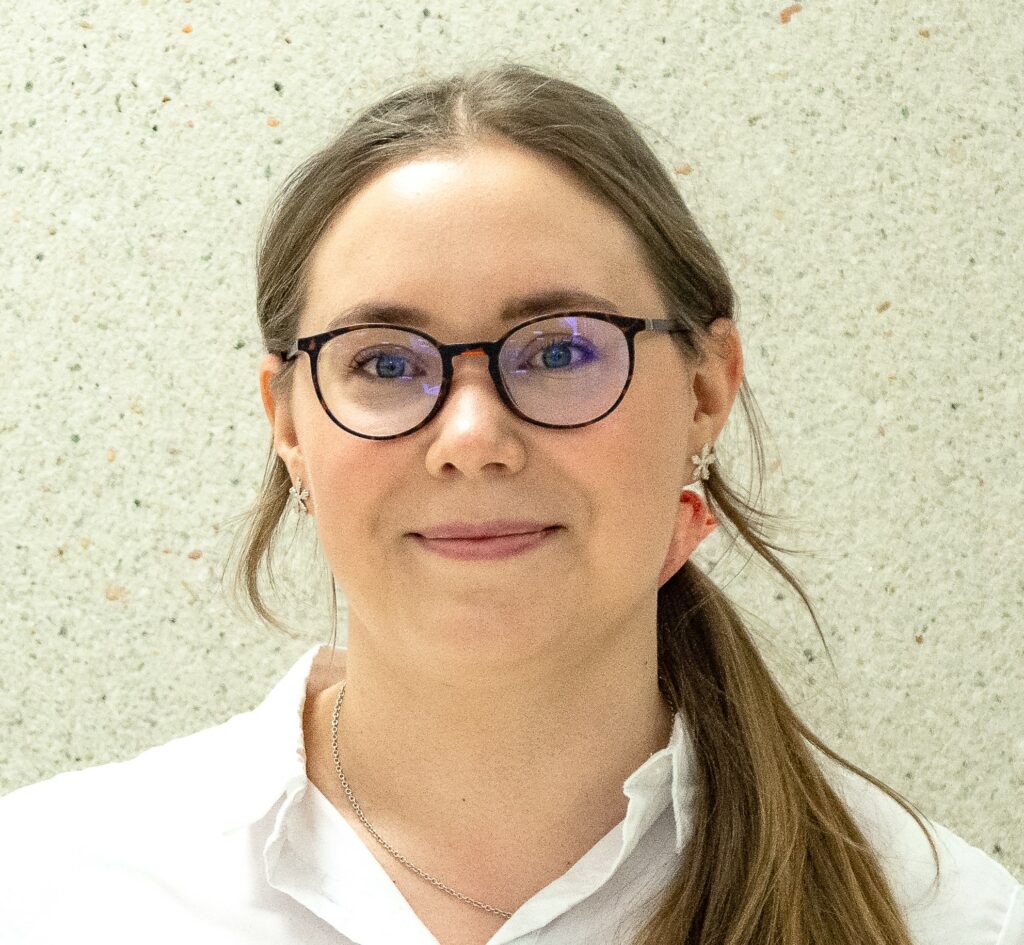
Tea Kangasvieri
Network coordinator, Global Innovation Network for Teaching and Learning (GINTL)
tea.s.m.kangasvieri[at]jyu.fi
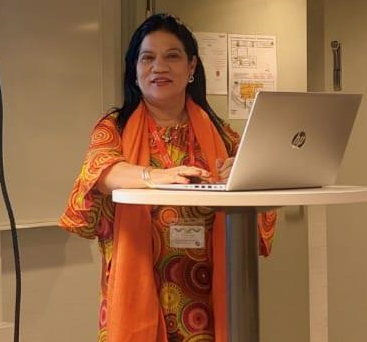
Richardine Poulton-Busler
Lecturer, University of Namibia, Visiting scholar, GINTL, University of Helsinki
rpoulton-busler[at]unam.na













